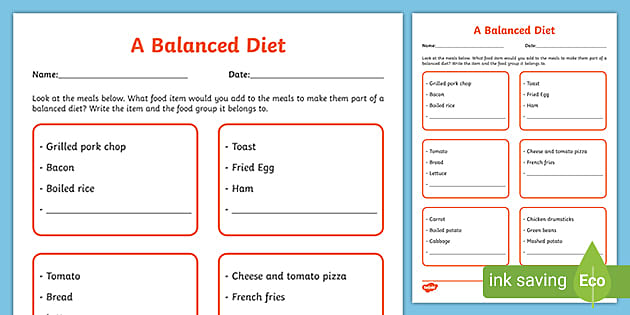
The key to achieving your athletic goals is choosing the right sport nutrition plan. It is essential to eat balanced meals and not eat too many calories. Many people mistakenly believe that carbohydrates are the only food group required for athletes. They're actually the most important part of the diet. The right combination of carbohydrates, proteins, fats, can fuel your body to achieve your goals.
For athletes to be able to digest food and avoid gastrointestinal upsets, they should eat at least three hours before competing or exercising. A healthy diet should include plenty of carbohydrate, protein, and fat. It is important to limit intake of junk food and starchy vegetables. A balanced diet that includes lean meats, fruits and vegetables, as well as whole grains, is the best way to get sports nutrition. These foods are rich in vitamins and minerals but they don't provide a lot of calories.

Carbohydrates should be the number one food an athlete eats before any event. Carbohydrates provide energy and are found in many foods, including milk, breads cereals, grains, vegetables, fruits, and grains. Consuming carbohydrates in small quantities is the best way to get them. Avoid high-fat and high-protein meals. You will get the best results if you eat high-carbohydrate meals at least two hours prior to an event.
A balanced diet rich with complex carbohydrates and healthy oils is essential for athletes. A healthy diet includes 45%-66% carbohydrates, 10%-30% protein, and 25-35% fat. It is important to drink plenty of water before, after, and during a sport. The right food at the right time will maximize your performance and reduce muscle damage due to oxidative stress. Supplements are important for athletes to help speed up recovery.
Balanced carbohydrate and fat intake is essential for athletes. During the digestion process, carbohydrates are broken down into sugar, glucose, which is the body's primary energy source. It is converted into glycogen, a type of fat that is stored in muscle tissue and is a key source of energy during an athlete's workout. By consuming carbohydrates and fatty foods before and after an event, athletes can increase their glycogen stores and avoid the risk of dehydration.

Athletes must also consume adequate water. Ample hydration is essential for optimal health. To maintain its activities, the body needs to be able to access adequate fluids and sodium. This is the best approach to avoid cramps and enhance performance. Athletes need to ensure that their diet is balanced with their training. In the case of endurance athletes, this is not easy. It can also cause headaches and cramps.
FAQ
Exercise: Good for immunity or not?
Your immune system is strengthened by exercise. Exercise boosts the production of white blood cells, which can fight off infections. Your body also removes toxins. Exercise is a great way to prevent heart disease, cancer, and other diseases. It also reduces stress levels.
However, overtraining can damage your immune system. You can cause muscle soreness by working out too hard. This can cause inflammation and swelling. The body then needs to make more antibodies to fight infection. Problem is, extra antibodies can trigger allergies and other autoimmune conditions.
So, don't overdo it!
What is the difference in a virus and bacteria?
A virus is an organism microscopic that can't reproduce outside its host cells. A bacterium is an organism that splits itself in two. Viruses measure only 20 nanometers in diameter, but bacteria is up to 1 millimeter in size.
Viruses are spread via contact with infected bodily liquids such as urine, saliva, semen and vaginal secretions. Bacteria is usually spread directly from surfaces or objects contaminated with bacteria.
Viral infections can also be introduced to our bodies by a variety of cuts, scrapes or bites. They may also get into the body through the nose and mouth, eyes, ears or rectum.
Bacteria can get into our bodies through cuts, scrapes and burns, insect bites, or other skin breaks. They may also be introduced into our bodies through food and water as well as soil, dirt, dust, and animals.
Both bacteria and viruses can cause illness. Viruses cannot multiply in their host cells. They infect only living cells, causing illness.
Bacteria can cause illness by multiplying in the body. They can even invade other parts of the body. We need antibiotics to get rid of them.
Which lifestyle is best for your health?
A healthy lifestyle means eating healthy foods, exercising regularly, sleeping well, and avoiding stress. This will ensure that you live a long healthy life.
It's easy to start small with your exercise and diet. To lose weight, you can start walking for 30 mins each day. You can also take up dancing or swimming if you are looking to be more active. You can also sign up for an online fitness program, such as Strava and Fitbit. This will track your activity.
What should I be eating?
Eat lots of fruits and vegetables. They contain vitamins and minerals which help keep your immune system strong. Additionally, vegetables and fruits are high fiber. This helps with digestion and keeps them full. At least five servings of fruits and vegetables should be consumed each day.
Get plenty of water. Water flushes toxins from the body and gives you a full feeling between meals. Drink about eight glasses each day.
Whole grains are better than refined ones. Whole grains have all their nutrients intact, including B vitamins, iron, zinc, magnesium, calcium, and protein. Refined grains are stripped of some of their nutritional value.
Sugary drinks are best avoided. Sugary drinks are high in empty calories and can lead to obesity. Instead, you can opt for water or milk, as well as unsweetened herbal teas.
Avoid fast food. Fast food lacks nutritional value. While it might taste good, it won't give your body the energy it needs to function properly. Stick to healthier options such as salads, soups, sandwiches, and pasta dishes.
Limit alcohol intake. Alcohol can lead to poor nutrition and empty calories. Limit your intake of alcohol to two drinks per week.
Red meat consumption should be reduced. Red meats have high levels of cholesterol and saturated fat. You should choose lean cuts like beef, pork lamb, chicken and fish instead.
What are 10 healthy behaviors?
-
Eat breakfast every day.
-
Don't skip meals.
-
You should eat a balanced diet.
-
Drink plenty of water
-
Take care your body.
-
Get enough sleep.
-
Avoid junk foods.
-
Do some type of exercise daily.
-
Have fun
-
Meet new people.
What's the problem in BMI?
BMI stands for Body Mass Index. This is a measure of body fat that is calculated based on height or weight. Here is how to calculate BMI using the following formula.
Weight in kilograms divided with height in meters.
The result can be expressed as a number between zero and 25. A score of 18.5+ indicates that you are overweight. A score higher than 23 indicates that you are obese.
A person who is 100 kg in weight and 1.75m in height will have a 22 BMI.
Statistics
- In both adults and children, the intake of free sugars should be reduced to less than 10% of total energy intake. (who.int)
- WHO recommends reducing saturated fats to less than 10% of total energy intake; reducing trans-fats to less than 1% of total energy intake; and replacing both saturated fats and trans-fats to unsaturated fats. (who.int)
- nutrients.[17]X Research sourceWhole grains to try include: 100% whole wheat pasta and bread, brown rice, whole grain oats, farro, millet, quinoa, and barley. (wikihow.com)
- According to the Physical Activity Guidelines for Americans, we should strive for at least 150 minutes of moderate intensity activity each week (54Trusted Source Smoking, harmful use of drugs, and alcohol abuse can all seriously negatively affect your health. (healthline.com)
External Links
How To
How to stay motivated to stick to healthy eating and exercise
Tips for staying healthy and motivated
Motivational Tips for Staying Healthy
-
Create a list of your goals
-
Set realistic goals
-
Be consistent
-
Reward yourself when you achieve your goal
-
If you fail the first time, don't lose heart
-
Have fun